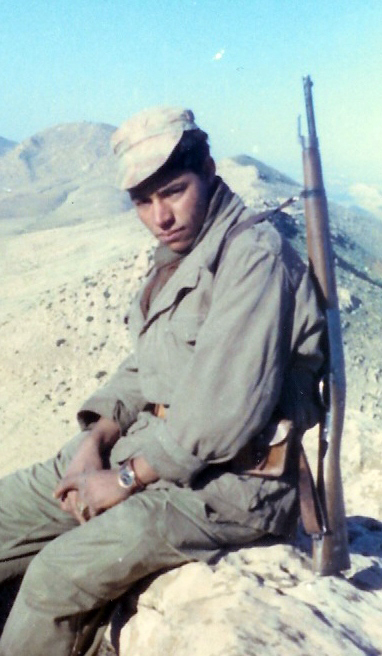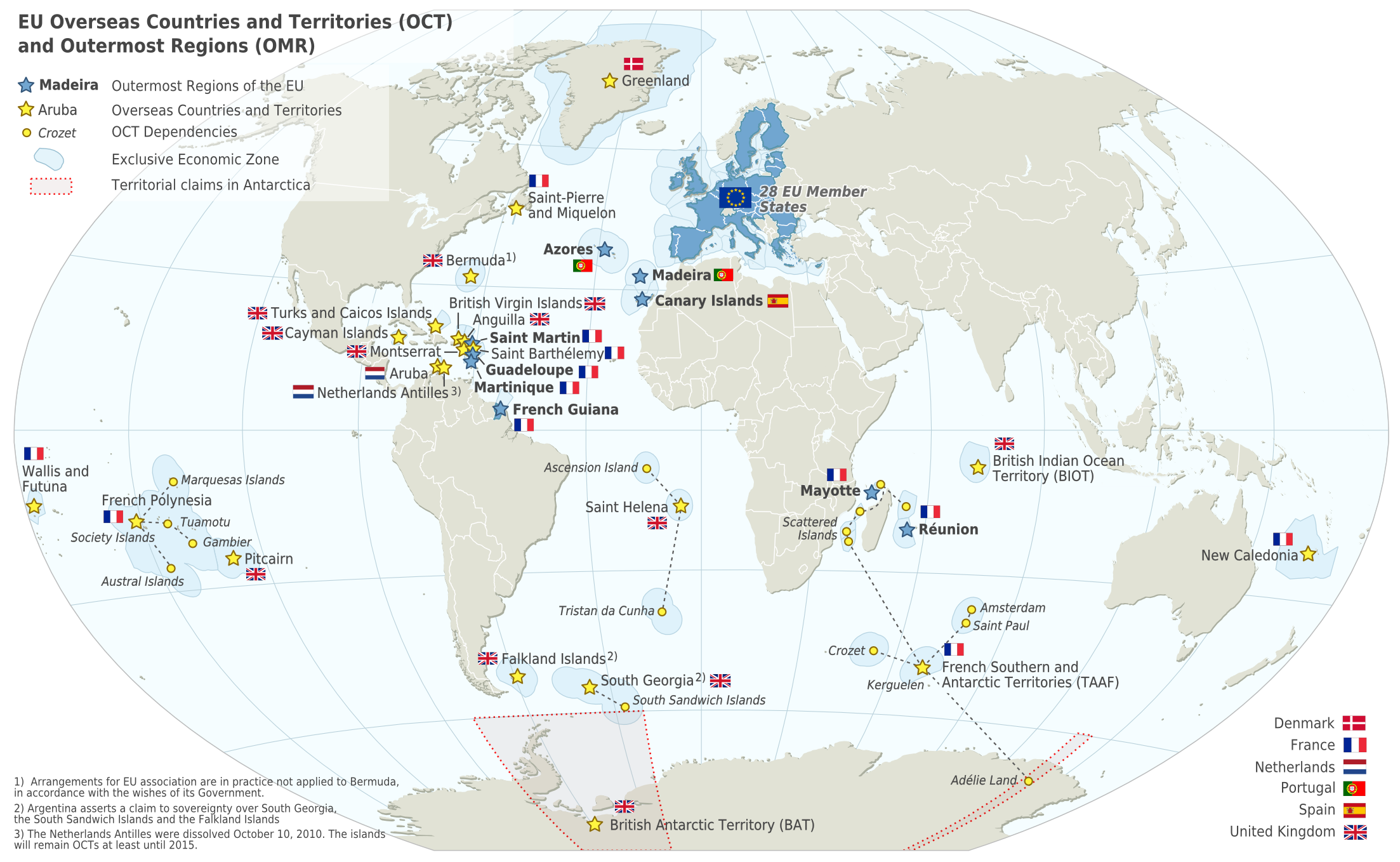|
French Law On Colonialism
The 23 February 2005 French law on colonialism (, "Law No. 2005-158 of 23 February 2005 regarding recognition of the Nation and national contribution in favour of the French repatriates") was an act passed by the National Assembly, which imposed on high-school (''lycée'') teachers a requirement to teach the "positive values" of colonialism to their students (Article 4, Paragraph 2). The law, particularly the aforementioned paragraph and Articles 1 and 13, created a public uproar and drew massive opposition from the left, and Article 4, Paragraph 2 was repealed by president Jacques Chirac (UMP) at the beginning of 2006, after accusations of historical revisionism from various teachers and historians, including Pierre Vidal-Naquet, Claude Liauzu, Olivier Le Cour Grandmaison and Benjamin Stora. Its Article 13 was also criticized as it supported former Organisation armée secrète (OAS) militants. Context At the end of Algerian War, upon independence in 1962, 900,000 European-Al ... [...More Info...] [...Related Items...] OR: [Wikipedia] [Google] [Baidu] |
National Assembly (France)
The National Assembly (french: link=no, italics=set, Assemblée nationale; ) is the lower house of the bicameral French Parliament under the Fifth Republic, the upper house being the Senate (). The National Assembly's legislators are known as (), meaning "delegate" or "envoy" in English; etymologically, it is a cognate of the English word ''deputy'', which is the standard term for legislators in many parliamentary systems). There are 577 , each elected by a single-member constituency (at least one per department) through a two-round system; thus, 289 seats are required for a majority. The president of the National Assembly, Yaël Braun-Pivet, presides over the body. The officeholder is usually a member of the largest party represented, assisted by vice presidents from across the represented political spectrum. The National Assembly's term is five years; however, the President of France may dissolve the Assembly, thereby calling for new elections, unless it has been dissolv ... [...More Info...] [...Related Items...] OR: [Wikipedia] [Google] [Baidu] |
Algeria
) , image_map = Algeria (centered orthographic projection).svg , map_caption = , image_map2 = , capital = Algiers , coordinates = , largest_city = capital , religion = , official_languages = , languages_type = Other languages , languages = Algerian Arabic (Darja) French , ethnic_groups = , demonym = Algerian , government_type = Unitary semi-presidential republic , leader_title1 = President , leader_name1 = Abdelmadjid Tebboune , leader_title2 = Prime Minister , leader_name2 = Aymen Benabderrahmane , leader_title3 = Council President , leader_name3 = Salah Goudjil , leader_title4 = Assembly President , leader_name4 = Ibrahim Boughali , legislature = Parliament , upper_house = Council of the Nation , lower_house ... [...More Info...] [...Related Items...] OR: [Wikipedia] [Google] [Baidu] |
Harki
''Harki'' (adjective from the Arabic ''harka'', standard Arabic ''haraka'' حركة, "war party" or "movement", i.e., a group of volunteers, especially soldiers) is the generic term for native Muslim Algerian who served as auxiliaries in the French Army during the Algerian War of Independence from 1954 to 1962. The word sometimes applies to all Algerian Muslims (thus including civilians) who supported French Algeria during the war. The motives for enlisting were mixed. They are regarded as traitors in independent Algeria and thousands were killed after the war in reprisals despite the Évian Accords ceasefire and amnesty stipulations. In France the term can apply to ''Franco-musulmans rapatriés'' (repatriated French Muslims) living in the country since 1962 - and to their metropolitan-born descendants. In this sense, the term ''Harki'' refers to a social group - a fraction of the French Muslims from Algeria - as distinct from other French of Algerian origin, or from Algerians ... [...More Info...] [...Related Items...] OR: [Wikipedia] [Google] [Baidu] |
Lobbying
In politics, lobbying, persuasion or interest representation is the act of lawfully attempting to influence the actions, policies, or decisions of government officials, most often legislators or members of regulatory agency, regulatory agencies. Lobbying, which usually involves direct, face-to-face contact, is done by many types of people, associations and organized groups, including individuals in the private sector, corporations, fellow legislators or government officials, or advocacy groups (interest groups). Lobbyists may be among a legislator's Electoral district, constituencies, meaning a Voting, voter or Voting bloc, bloc of voters within their electoral district; they may engage in lobbying as a business. Professional lobbyists are people whose business is trying to influence legislation, regulation, or other government decisions, actions, or policies on behalf of a group or individual who hires them. Individuals and nonprofit organizations can also lobby as an act of vo ... [...More Info...] [...Related Items...] OR: [Wikipedia] [Google] [Baidu] |
Christiane Taubira
Christiane Marie Taubira (; born 2 February 1952) is a French politician who served as Minister of Justice of France in the governments of Prime Ministers Jean-Marc Ayrault and Manuel Valls under President François Hollande from 2012 until 2016. She was a member of the National Assembly of France for French Guiana from 1993 to 2012 and member of the European Parliament from 1994 to 1999. She won the 2022 French People's Primary, winning the right to stand as a "unity left" candidate in the 2022 French presidential election. It was her second bid after the 2002 French presidential election where she failed to qualify to the second round after garnering only 2.32% of the votes in the first round. She dropped out of the race on 2 March 2022 after failing to get enough support to qualify. Early life Taubira was born on 2 February 1952 in Cayenne, French Guiana, France, as one of 11 siblings and raised by a single mother. Among others, she is the sister of French politician Jean- ... [...More Info...] [...Related Items...] OR: [Wikipedia] [Google] [Baidu] |
Christian Vanneste
Christian Vanneste (born 14 July 1947) is a French politician. He served two terms as a deputy in the French Parliament (2002-2012), representing the Union for a Popular Movement (UMP). Career A member of the French Parliament, he was elected in the 10th constituency of Nord. He sat with the parliamentary group of the Union for a Popular Movement (UMP). In 2005/2006, he reported on the controversial DADVSI copyright bill. He was beaten in the first round of the June 2012 legislative elections. Controversy In January 2006, Vanneste became the first French citizen to be fined €3,000 (in the first instance, but later relaxed) for his homophobic remarks. During a debate in the National Assembly of France, and afterwards in the media, he declared homosexual behavior a threat to the survival of humanity, and "morally inferior" to heterosexuality. The judgement, after a refused appeal, was eventually cancelled by the Cour de cassation on 12 November 2008. In 2012, Vanneste ... [...More Info...] [...Related Items...] OR: [Wikipedia] [Google] [Baidu] |
Fort-de-France
Fort-de-France (, , ; gcf, label=Martinican Creole, Fodfwans) is a Communes of France, commune and the capital city of Martinique, an overseas department and region of France located in the Caribbean. It is also one of the major cities in the Caribbean. History In 1638, Jacques Dyel du Parquet (1606–1658), nephew of Pierre Belain d'Esnambuc and first governor of Martinique, decided to have Fort Saint Louis built to protect the city against enemy attacks. The fort was soon destroyed, and rebuilt in 1669, when Louis XIV of France, Louis XIV appointed the Marquis of Baas as governor general. Under his orders and those of his successors, particularly the Charles de Courbon de Blénac, Count of Blénac, the fort was built with a Vauban design. Originally named Fort-Royal, the administrative capital of Martinique was over-shadowed by Saint-Pierre, Martinique, Saint-Pierre, the oldest city in the island, which was renowned for its commercial and cultural vibrancy as "The Paris of ... [...More Info...] [...Related Items...] OR: [Wikipedia] [Google] [Baidu] |
Martinique
Martinique ( , ; gcf, label=Martinican Creole, Matinik or ; Kalinago: or ) is an island and an overseas department/region and single territorial collectivity of France. An integral part of the French Republic, Martinique is located in the Lesser Antilles of the West Indies in the eastern Caribbean Sea. It has a land area of and a population of 364,508 inhabitants as of January 2019.Populations légales 2019: 972 Martinique INSEE One of the , it is directly north of Saint Lucia, northwest of |
Overseas Department
The overseas departments and regions of France (french: départements et régions d'outre-mer, ; ''DROM'') are departments of France that are outside metropolitan France, the European part of France. They have exactly the same status as mainland France's regions and departments. The French Constitution provides that, in general, French laws and regulations (France's civil code, penal code, administrative law, social laws, tax laws, etc.) apply to French overseas regions the same as in metropolitan France, but can be adapted as needed to suit the region's particular needs. Hence, the local administrations of French overseas regions cannot themselves pass new laws. As integral parts of France and the European Union, overseas departments are represented in the National Assembly, Senate, and Economic and Social Council, vote to elect members of the European Parliament (MEP), and also use the euro as their currency. The overseas departments and regions are not the same as the overs ... [...More Info...] [...Related Items...] OR: [Wikipedia] [Google] [Baidu] |
Nicolas Sarkozy
Nicolas Paul Stéphane Sarközy de Nagy-Bocsa (; ; born 28 January 1955) is a French politician who served as President of France from 2007 to 2012. Born in Paris, he is of Hungarian, Greek Jewish, and French origin. Mayor of Neuilly-sur-Seine from 1983 to 2002, he was Minister of the Budget under Prime Minister Édouard Balladur (1993–1995) during François Mitterrand's second term. During Jacques Chirac's second presidential term he served as Minister of the Interior and as Minister of Finances. He was the leader of the Union for a Popular Movement (UMP) party from 2004 to 2007. He won the 2007 French presidential election by a 53.1% to 46.9% margin against Ségolène Royal, the Socialist Party (PS) candidate. During his term, he faced the financial crisis of 2007–2008 (causing a recession, the European sovereign debt crisis), the Russo-Georgian War (for which he negotiated a ceasefire) and the Arab Spring (especially in Tunisia, Libya, and Syria). He initiated th ... [...More Info...] [...Related Items...] OR: [Wikipedia] [Google] [Baidu] |
Anti-colonialist
Decolonization or decolonisation is the undoing of colonialism, the latter being the process whereby imperial nations establish and dominate foreign territories, often overseas. Some scholars of decolonization focus especially on independence movements in the colonies and the collapse of global colonial empires. Other scholars extend the meaning to include economic, cultural and psychological aspects of the colonial experience. Decolonisation scholars apply the framework to struggles against coloniality of power within settler-colonial states even after successful independence movements. Indigenous and post-colonial scholars have critiqued Western worldviews, promoting decolonization of knowledge and the centering of traditional ecological knowledge. Scope The United Nations (UN) states that the fundamental right to self-determination is the core requirement for decolonization, and that this right can be exercised with or without political independence. A UN General Asse ... [...More Info...] [...Related Items...] OR: [Wikipedia] [Google] [Baidu] |
Négritude
''Négritude'' (from French "Nègre" and "-itude" to denote a condition that can be translated as "Blackness") is a framework of critique and literary theory, developed mainly by francophone intellectuals, writers, and politicians of the African diaspora during the 1930s, aimed at raising and cultivating "Black consciousness" across Africa and its diaspora. Négritude gathers writers such as sisters Paulette and Jeanne Nardal (known for having laid the theoretical basis of the movement), Martinican poet Aimé Césaire, Abdoulaye Sadji, Léopold Sédar Senghor (the first President of Senegal), and Léon Damas of French Guiana. ''Négritude'' intellectuals disavowed colonialism, racism and Eurocentrism. They promoted African culture within a framework of persistent Franco-African ties. The intellectuals employed Marxist political philosophy, in the Black radical tradition. The writers drew heavily on a surrealist literary style, and some say they were also influenced somewhat by the ... [...More Info...] [...Related Items...] OR: [Wikipedia] [Google] [Baidu] |







